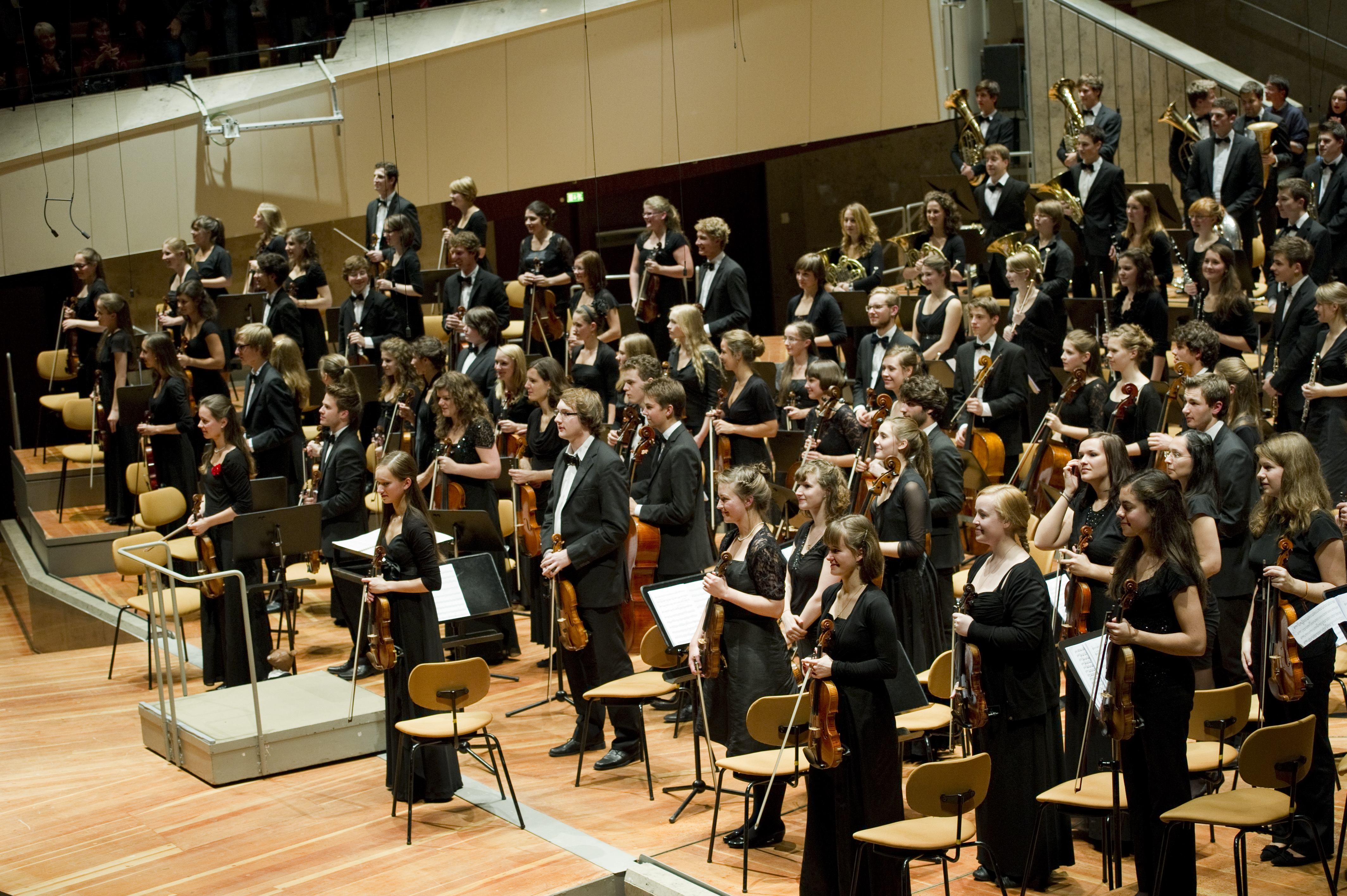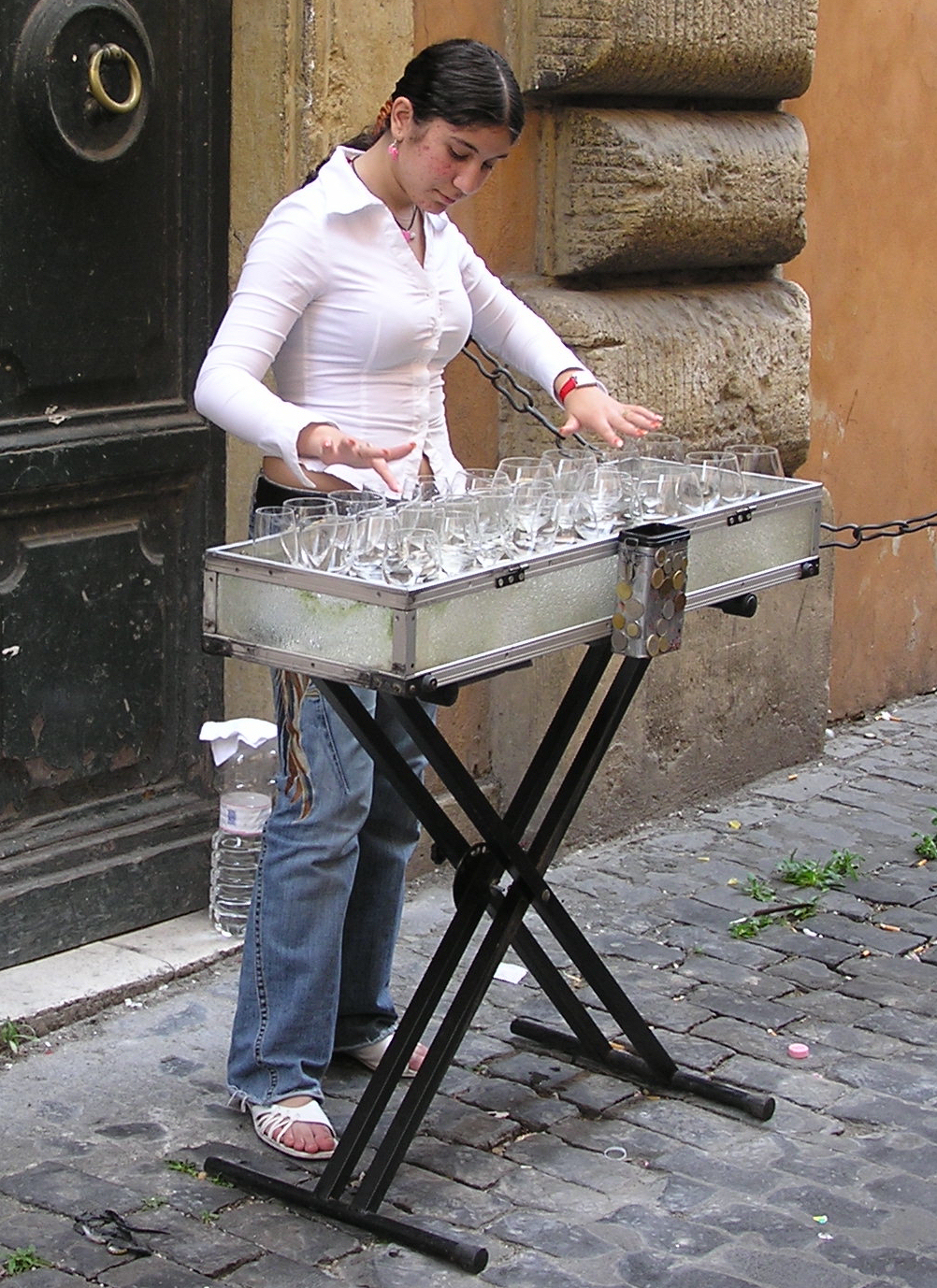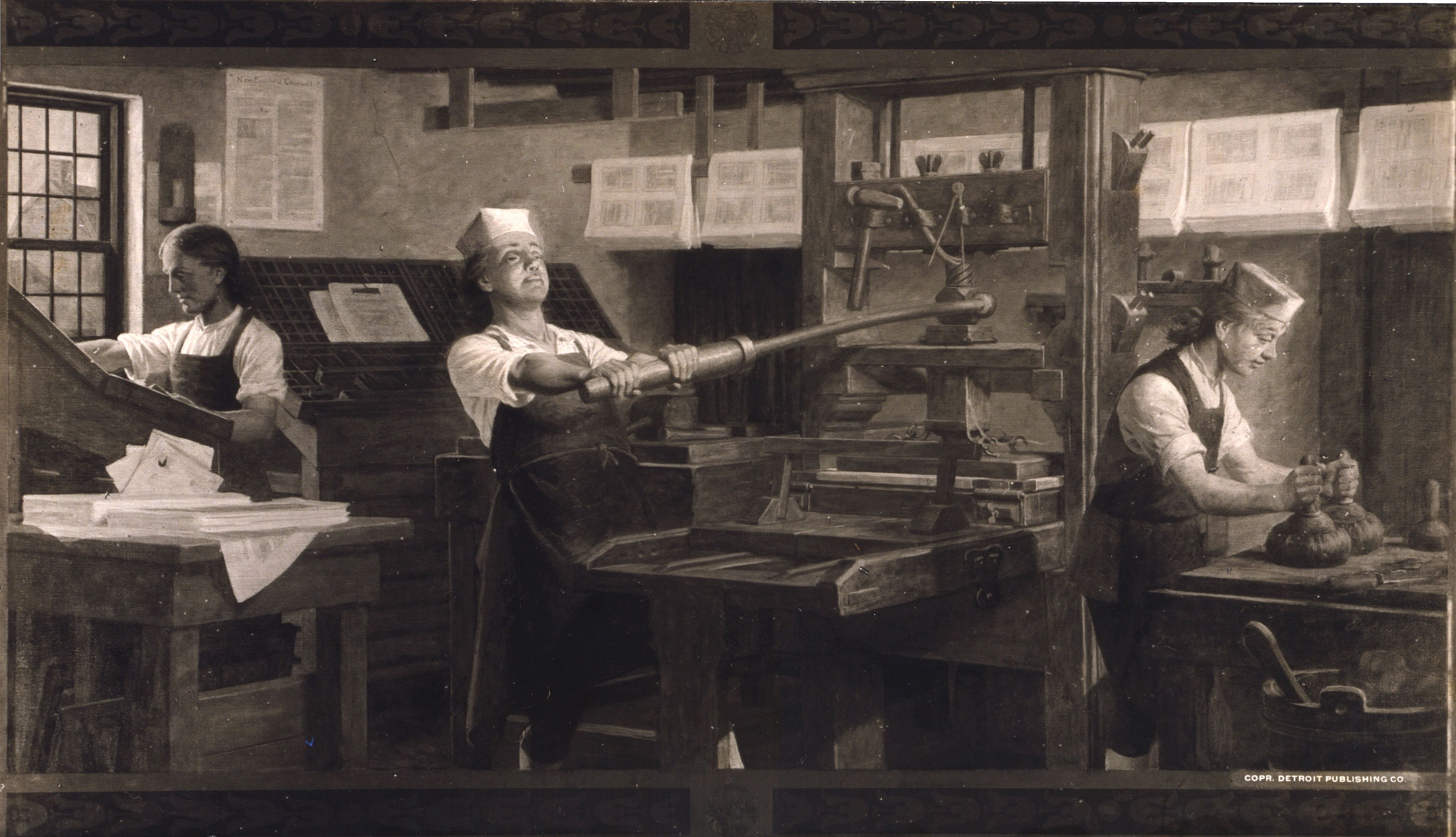|
Marianne Davies
Marianne Davies (1743 or 1744 – c. 1818) was an English musician, daughter of the composer and flautist Richard Davies and the sister of the classical soprano Cecilia Davies. She was a singer who also played flute and harpsichord. She was hailed as a child prodigy of the flute, and on April 7, 1751 at Hickford's Long Room, at the age of seven, played not only a concerto of her own composition on the flute, but also a harpsichord concerto by Handel. She was prevented from pursuing the flute by prevailing gendered stereotypes, as the flute was almost exclusively played by men. Performing in public on male-coded instruments, as Davies did on the flute at this time, was a highly radical act, so she switched to the glass harmonica. Marianne initially was a vocal teacher to her sister Cecilia. Marianne began to tour at a young age and performed in benefit concerts that were held for her. In 1753, she played another benefit concert for herself in Soho where she played a Handel con ... [...More Info...] [...Related Items...] OR: [Wikipedia] [Google] [Baidu] |
Musician
A musician is someone who Composer, composes, Conducting, conducts, or Performing arts#Performers, performs music. According to the United States Employment Service, "musician" is a general Terminology, term used to designate a person who follows music as a profession. Musicians include songwriters, who write both music and lyrics for songs; conductors, who direct a musical performance; and performers, who perform for an audience. A music performer is generally either a singer (also known as a vocalist), who provides vocals, or an instrumentalist, who plays a musical instrument. Musicians may perform on their own or as part of a Musical ensemble, group, band or orchestra. Musicians can specialize in a musical genre, though many play a variety of different styles and blend or cross said genres, a musician's musical output depending on a variety of technical and other background influences including their culture, skillset, life experience, education, and creative preferences. A ... [...More Info...] [...Related Items...] OR: [Wikipedia] [Google] [Baidu] |
Classical Music
Classical music generally refers to the art music of the Western world, considered to be #Relationship to other music traditions, distinct from Western folk music or popular music traditions. It is sometimes distinguished as Western classical music, as the term "classical music" can also be applied to List of classical and art music traditions, non-Western art musics. Classical music is often characterized by formality and complexity in its musical form and Harmony, harmonic organization, particularly with the use of polyphony. Since at least the ninth century, it has been primarily a written tradition, spawning a sophisticated music notation, notational system, as well as accompanying literature in music analysis, analytical, music criticism, critical, Music history, historiographical, musicology, musicological and Philosophy of music, philosophical practices. A foundational component of Western culture, classical music is frequently seen from the perspective of individual or com ... [...More Info...] [...Related Items...] OR: [Wikipedia] [Google] [Baidu] |
Soprano
A soprano () is a type of classical singing voice and has the highest vocal range of all voice types. The soprano's vocal range (using scientific pitch notation) is from approximately middle C (C4) = 261 Hertz, Hz to A5 in Choir, choral music, or to soprano C (C6) or higher in operatic music. In four-part chorale style harmony, the soprano takes the highest part, which often encompasses the melody. The soprano voice type is generally divided into the coloratura soprano, coloratura, soubrette, lyric soprano, lyric, spinto soprano, spinto, and dramatic soprano, dramatic soprano. Etymology The word "soprano" comes from the Italian word ''wikt:sopra, sopra'' (above, over, on top of),"Soprano" ''Encyclopædia Britannica'' as the soprano is the highest pitch human voice, often given to the leading female roles in operas. "Soprano" refers ... [...More Info...] [...Related Items...] OR: [Wikipedia] [Google] [Baidu] |
Cecilia Davies
Cecilia Davies (c. 1756 – 3 July 1836) was an English classical soprano who had an active international career in concerts and operas during the second half of the 18th century. In Italy she was known as "l'Inglesina". She was the sister of Marianne Davies who was the first professional glass harmonica musician. She sang in several world premieres during her career, including Thomas Arne's ''Love in a Village'' (1762, Margery) and Josef Mysliveček's ''La Circe LA most frequently refers to Los Angeles, the second most populous city in the United States of America. La, LA, or L.A. may also refer to: Arts and entertainment Music *La (musical note), or A, the sixth note *"L.A.", a song by Elliott Smit ...'' (1779, title role). References * 1750s births 1836 deaths English operatic sopranos 18th-century British women opera singers {{UK-opera-singer-stub ... [...More Info...] [...Related Items...] OR: [Wikipedia] [Google] [Baidu] |
Hickford's Long Room
Hickford's Long Room was a public concert room in London, which ran from April 1713 until 1787; it became known as Rice's Rooms from 1788. Harrison's date of 1779 is not correct. It was paid for on a subscription basis to those who could afford to patronize the arts, such as the nobility. The 1922 Groves noted that "most of the great performers, both vocal and instrumental, who visited England, gave their concerts there." The room became a place to see successful musicians play, including Francesco Scarlatti (1719 & 1724), Francesco Geminiani (c. 1732), Gluck in 1746, Mozart (1765), Francesco Maria Veracini, Pietro Castrucci and Matthew Dubourg. For a time in the 1740s and 50s, it was the only concert room of note in the West End of London. John Hickford A 1922 source reports that "little is known" of the venue's founder, John Hickford. He was a "dancing-master in the latter part Queen Anne's reign", and his room was one of two in the west end of London with sufficient room ... [...More Info...] [...Related Items...] OR: [Wikipedia] [Google] [Baidu] |
Glass Harmonica
The glass harmonica, also known as the glass armonica, glass harmonium, bowl organ, hydrocrystalophone, or simply the armonica or harmonica (derived from , ''harmonia'', the Greek language, Greek word for harmony), is a type of musical instrument that uses a series of glass bowl (vessel), bowls or goblets graduated in size to produce musical pitch (music), tones by means of friction (instruments of this type are known as friction idiophones). It was invented in 1761 by Benjamin Franklin. Nomenclature The name "glass harmonica" (also "glass armonica", "glassharmonica"; ''harmonica de verre'', ''harmonica de Franklin'', ''armonica de verre'', or just ''harmonica'' in French; ''Glasharmonika'' in German; ''harmonica'' in Dutch) refers today to any instrument played by rubbing glass or crystal goblets or bowls. The alternative instrument consisting of a set of wine glasses (usually tuned with water) is generally known in English as "musical glasses" or the "glass harp". When Be ... [...More Info...] [...Related Items...] OR: [Wikipedia] [Google] [Baidu] |
Mozart
Wolfgang Amadeus Mozart (27 January 1756 – 5 December 1791) was a prolific and influential composer of the Classical period (music), Classical period. Despite his short life, his rapid pace of composition and proficiency from an early age resulted in List of compositions by Wolfgang Amadeus Mozart, more than 800 works representing virtually every Western classical genre of his time. Many of these compositions are acknowledged as pinnacles of the symphony, symphonic, concerto, concertante, chamber music, chamber, operatic, and choir, choral repertoires. Mozart is widely regarded as one of the greatest composers in the history of Classical music, Western music, with his music admired for its "melodic beauty, its formal elegance and its richness of harmony and texture". Born in Salzburg, Mozart showed Child prodigy, prodigious ability from his earliest childhood. At age five, he was already competent on keyboard and violin, had begun to compose, and performed before European r ... [...More Info...] [...Related Items...] OR: [Wikipedia] [Google] [Baidu] |
Beethoven
Ludwig van Beethoven (baptised 17 December 177026 March 1827) was a German composer and pianist. He is one of the most revered figures in the history of Western music; his works rank among the most performed of the classical music repertoire and span the Transition from Classical to Romantic music, transition from the Classical period (music), Classical period to the Romantic music, Romantic era. His early period, during which he forged his craft, is typically considered to have lasted until 1802. From 1802 to around 1812, his middle period showed an individual development from the styles of Joseph Haydn and Wolfgang Amadeus Mozart, and is sometimes characterised as heroic. During this time, Beethoven began to grow increasingly Hearing loss, deaf. In his late period, from 1812 to 1827, he extended his innovations in musical form and expression. Born in Bonn, Beethoven displayed his musical talent at a young age. He was initially taught intensively by his father, Johann van Bee ... [...More Info...] [...Related Items...] OR: [Wikipedia] [Google] [Baidu] |
Benjamin Franklin
Benjamin Franklin (April 17, 1790) was an American polymath: a writer, scientist, inventor, statesman, diplomat, printer, publisher and Political philosophy, political philosopher.#britannica, Encyclopædia Britannica, Wood, 2021 Among the most influential intellectuals of his time, Franklin was one of the Founding Fathers of the United States; a Committee of Five, drafter and signer of the United States Declaration of Independence, Declaration of Independence; and the first United States Postmaster General, postmaster general. Born in the Province of Massachusetts Bay, Franklin became a successful Early American publishers and printers, newspaper editor and printer in Philadelphia, the leading city in the colonies, publishing ''The Pennsylvania Gazette'' at age 23. He became wealthy publishing this and ''Poor Richard's Almanack'', which he wrote under the pseudonym "Richard Saunders". After 1767, he was associated with the ''Pennsylvania Chronicle'', a newspaper known for it ... [...More Info...] [...Related Items...] OR: [Wikipedia] [Google] [Baidu] |
English Classical Musicians
English usually refers to: * English language * English people English may also refer to: Culture, language and peoples * ''English'', an adjective for something of, from, or related to England * ''English'', an Amish term for non-Amish, regardless of ethnicity * English studies, the study of English language and literature Media * ''English'' (2013 film), a Malayalam-language film * ''English'' (novel), a Chinese book by Wang Gang ** ''English'' (2018 film), a Chinese adaptation * ''The English'' (TV series), a 2022 Western-genre miniseries * ''English'' (play), a 2022 play by Sanaz Toossi People and fictional characters * English (surname), a list of people and fictional characters * English Fisher (1928–2011), American boxing coach * English Gardner (born 1992), American track and field sprinter * English McConnell (1882–1928), Irish footballer * Aiden English, a ring name of Matthew Rehwoldt (born 1987), American former professional wrestler ... [...More Info...] [...Related Items...] OR: [Wikipedia] [Google] [Baidu] |
Year Of Birth Unknown
A year is a unit of time based on how long it takes the Earth to orbit the Sun. In scientific use, the tropical year (approximately 365 solar days, 5 hours, 48 minutes, 45 seconds) and the sidereal year (about 20 minutes longer) are more exact. The modern calendar year, as reckoned according to the Gregorian calendar, approximates the tropical year by using a system of leap years. The term 'year' is also used to indicate other periods of roughly similar duration, such as the lunar year (a roughly 354-day cycle of twelve of the Moon's phasessee lunar calendar), as well as periods loosely associated with the calendar or astronomical year, such as the seasonal year, the fiscal year, the academic year, etc. Due to the Earth's axial tilt, the course of a year sees the passing of the seasons, marked by changes in weather, the hours of daylight, and, consequently, vegetation and soil fertility. In temperate and subpolar regions around the planet, four seasons ar ... [...More Info...] [...Related Items...] OR: [Wikipedia] [Google] [Baidu] |






